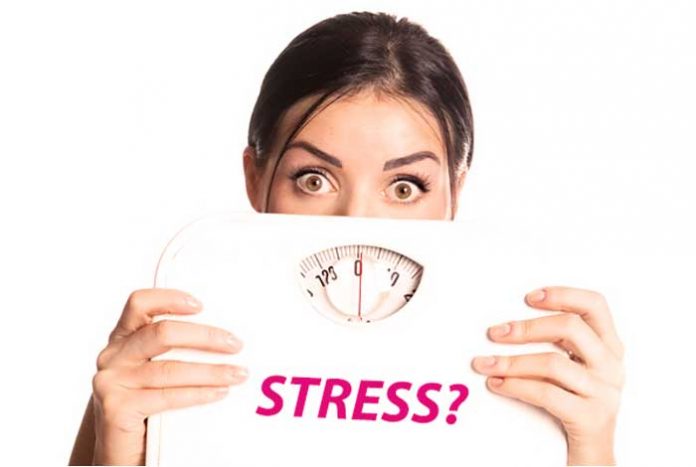
Stress is known to adversely affect your body in several ways and your waistline might be the worst-hit part of your body. There are a number of ways by which stress can contribute to weight gain. Read on to know how furrowed eyebrows can take a toll on your waistline.
Increase in your waistline due to stress[1]can be blamed to hormone, cortisol, which is secreted when the body is in fight-or-fight mode. When the body senses danger, it starts craving for foods that are high in sugar and salt content. These foods can increase your waist size.
When we are stressed, our body thinks that we are about to get attacked, and prepares itself to deal it with accordingly. There is a burst of energy, increased blood supply, shift in metabolism and several other bodily changes. In response to these changes, several processes of the body get affected like appetite, digestion and weight too.
If you are perpetually in this state, then chronic stress[2]can take a heavy toll on your health. Apart from weight gain, it can even give rise to more stress. Prolonged chronic and excessive levels of cortisol in the body can contribute to weight gain in the following ways:
Metabolism
When there is too much of cortisol in the blood, it can decrease the rate of your metabolism, which can lead to weight gain. When you are under stress, it is difficult to do dieting.
Cravings
People, who experience chronic stress, have strong cravings for salty, fatty and sweet foods. These foods are not good for your body and simply, increase your body weight[3] However, there a few ways by which you can manage your cravings and avoid obesity from hitting you.
Blood Sugar
When there is stress for a longer period of time, it can alter your blood glucose levels along with mood swings and fatigue. Too much stress is also linked to several health problems like diabetes and heart attack.
Fat Storage
Excessive stress is known to affect the way our body stores fat. When there is high level of emotional stress in life, there is increased storage of fat in the abdomen region, which poses more health risk than fat stored in other regions of body.
Emotional Eating
Stress can also make you eat more than what you normally do. When you are stressed, you will find yourself searching the refrigerator for foods that are unhealthy. You scour the kitchen for unhealthy snacks and keep on munching for no good reason.
Fast Food
Researchers believe that one of the main reasons behind obesity’s increasing prevalence in our society is that people are too stressed to make healthy foods at home. They prefer getting fast food from the nearest drive-thru. Also, healthier food options are costlier and we have very less control on what we put in our food.
Being Too Busy to Exercise
With all the stress in your life, exercise tends to be least important thing to do on a daily basis. If this is the case, you are not alone. People are now living a more sedentary lifestyle than ever before. Exercise is often ignored in our daily life while we remain busy struggling with the traffic, plopping in front of the television and clocking our hours in office. Let alone exercise, we are so exhausted that we do not have time for ourselves.
So, your goal must be reducing stress levels by bringing positive changes in your life, not just to ensure better mental health, but to remain fit with a healthy body weight.










